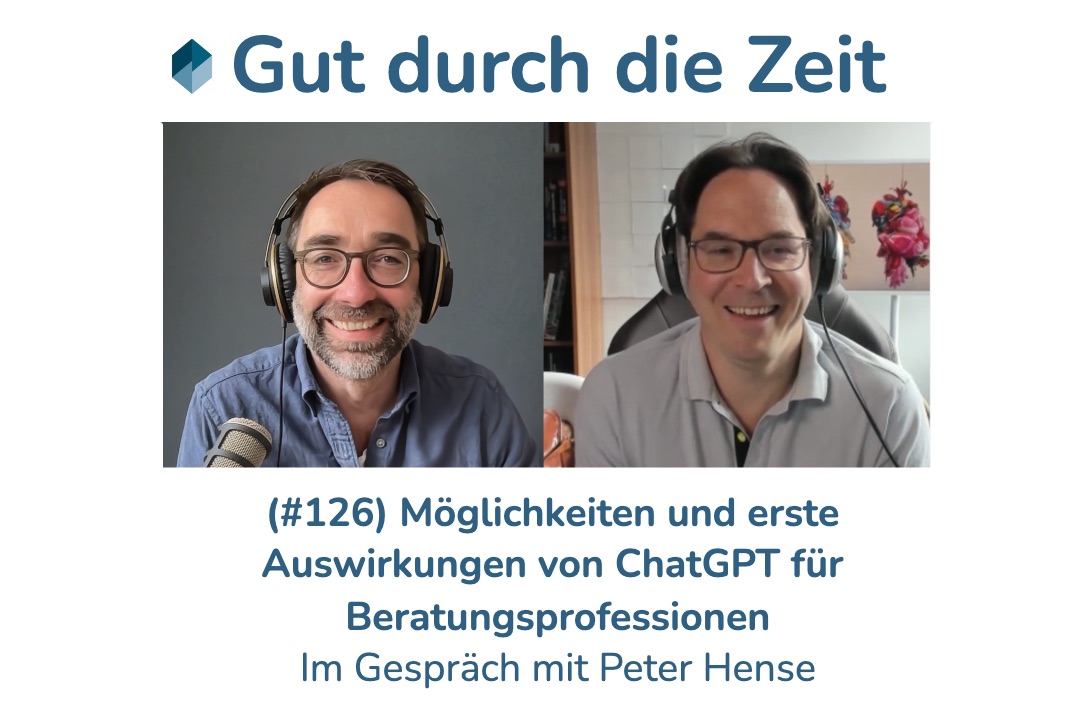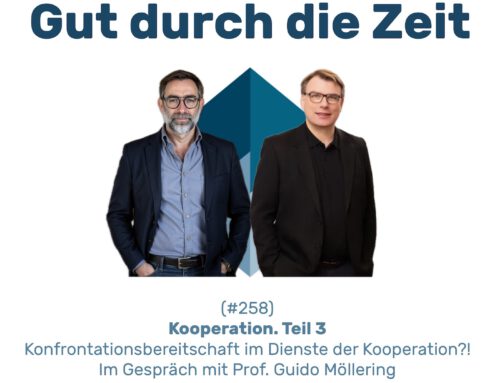INKOVEMA Podcast „Well through time“
#126 – Possibilities and initial impact of ChatGPT for counselling professionals
How can mediators, coaches, conflict counsellors and lawyers use Transformer models in practice and what is important? In conversation with lawyer Peter Hense
Well through time. The podcast about mediation, conflict coaching and organisational consulting.
Peter Hense is a lawyer and partner at Spirit Legal Rechtsanwälten. He works in international IT and technology law, the law governing the use of data and related litigation (privacy litigation). He specialises in distribution, travel technology, advertising technology, sensor data, machine learning and the ethics of automated decision-making systems (accountable AI).
Contents:
ChatGPT and Transformer models offer various possibilities in conflict counselling and coaching. They enable the simulation of human-like conversations, provide quick answers to specific questions and provide access to extensive information. By using these models, a variety of perspectives on conflicts and problems can be explored. However, it is important to emphasise that human empathy and interpersonal communication remain essential. ChatGPT and Transformer models can be used as supporting tools, but cannot replace human expertise. Critical evaluation of the generated answers and human review remain crucial to ensure high-quality counselling.
How can conflict counsellors use Transformer models such as Chat-GPT?
- Effective conversation simulationChatGPT is a powerful language model that can conduct human-like conversations. By using this model, mediators and coaches can Simulate realistic conversation scenariosto explore different approaches and develop effective communication strategies.
- Access to comprehensive informationTransformer models can process large amounts of data and provide answers to specific questions in the shortest possible time. Mediators and coaches can use these models to quickly research informationto gain background knowledge on specific topics and make informed decisions.
- Diverse perspectivesThe training data on which ChatGPT is based allows the model to represent different opinions and approaches to different conflicts and problems. This enables mediators and coaches, explore different perspectives and develop creative solutions.
It is important to point out that ChatGPT and similar models are capable but lack human empathy or emotional understanding. Therefore, mediators and coaches should consider ChatGPT as a tool that complements, but does not replace, human interaction. The importance of empathy, interpersonal communication and individual support should be emphasised.
Of course, it is also important to realise that there may be biases or limitations in the data used to train these models. A critical evaluation of the generated answers and a own review therefore remain crucial, to ensure that the advice is of high quality.
How are YOU using CHAT-GPT today? Let‘ me know!





You have definitely put a brand new twist on a topic that has been discussed for a long time. Great stuff, simply marvellous.
Thank you!